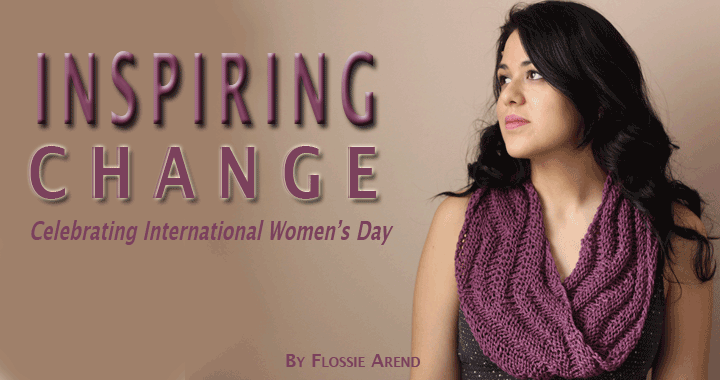
March 8, 2014, is International
Women’s Day. Every year, the month of March takes on a theme; this
year, the theme is Inspiring Change.
It’s ironic, then, that in 2014 we’ve
found so many women in positions of power who wish to recede into the
background when it comes to their gender. Acknowledge me for my work,
they say, and not for my gender. The COO of Facebook and author of the
wildly popular Lean In: Women, Work and the Will to Lead book
and movement, Sheryl Sandberg has asked that women lean into their workload,
both at home and in the office; yes, do everything you can, and more.
Do it effortlessly, with high visibility and responsibilities, and show
that women can do as much and more than their male counterparts, and without
making a feminine fuss. Ms. Sandberg wants individual women to institute
change through their work, with the assumption that a woman’s lack
of a powerful, well-paying job is the result of not “leaning in”
enough. Women themselves are at fault for their lack of power, rather
than the faulty system in which they are operating.
President John F. Kennedy signed the Equal
Pay Act in 1963. Yet, more than 50 years later, women are still paid only
77 cents for every dollar paid to a man. In Europe, the wage gap stands
at 16.4 percent, meaning women essentially work 59 days of the year for
free. Women only hold 4.6 percent of Fortune 500 and Fortune 1000 leadership
positions. Gender equality still has a woefully long journey before it.
In our opinion, if we really want to inspire
change, we need to celebrate, as loudly as possible, when a woman holds
a position of power. It is not an issue of being defined by our gender,
but rather the importance of recognizing that there is gender inequality.
It follows, then, that when a woman holds a position of power, she is
essentially working double duty against the current system—her figurative
muscles are larger than her male counterparts, because the tide of inequality
against which she must swim in order to even exist in her position is
that much stronger. If there are, say, 40 rungs on a man’s corporate
ladder, then there are 50 or more rungs on a woman’s corporate ladder.
We must climb higher, and longer, to get to the same place—why wouldn’t
we shine a light on our gender, when we are working so much harder because
of it?

 Today
Dolores Hofman heads up the Queens Air Services Development Office,
and the position is just where she wants to be in 2014. Today
Dolores Hofman heads up the Queens Air Services Development Office,
and the position is just where she wants to be in 2014.
But in 1972, Mrs. Hofman worked
as a secretary in the Pan Am Cargo office in Building 67. She
decided that office work was boring; since she was already a Teamsters
Union member, she was allowed to compete for any union job.
Dolores applied for a post on the
loading dock and became the first female in history to operate
a forklift truck in commercial air cargo service.
At the time she said: “I’m
not much of a women’s libber—but I certainly do believe
in equal job opportunities for men and women.”
The sentiment itself, in the air
cargo world, may have been a first as well.
We extend our best greetings and
a FlyingTypers shout-out to a very special and courageous lady
who continues to do what she wants and in that process has been
an inspiration for many others.
|
We shouldn’t eschew our
gender, or ask that we be referenced by our position only. We should claim
our womanhood alongside our positions, because the occupation of those
positions is a revolutionary act—and only a revolutionary act because
we are women. The world should know how difficult it is to exist in the
workforce as a woman, especially in air cargo, where the landscape has
been largely male for so long. The goal is for a future where the act
of women holding positions of power is not revolutionary, but commonplace.
The reality is that we aren’t there yet. And if women insist on
shuttering their gender in lieu of their position, they are only cloaking
in darkness the struggle inherent in the climb. We cannot fight quietly
if we truly wish to inspire change, and change doesn’t exist in
a vacuum, nor is it carried on the back of a single woman. Change comes
when we band together and hold our gender as an example of inequality,
and a talisman against it.
In the future, we may be fortified by equality.
That is the hope. But one woman in one position of power has not achieved
the goal of equality, especially if women are still making less than men
across the board. The fight is for all women, for equality for all.
“From the
equality of rights springs identity of our highest interests; you
cannot subvert your neighbor's rights without striking a dangerous
blow at your own.”
—Carl
Schurz |
|



